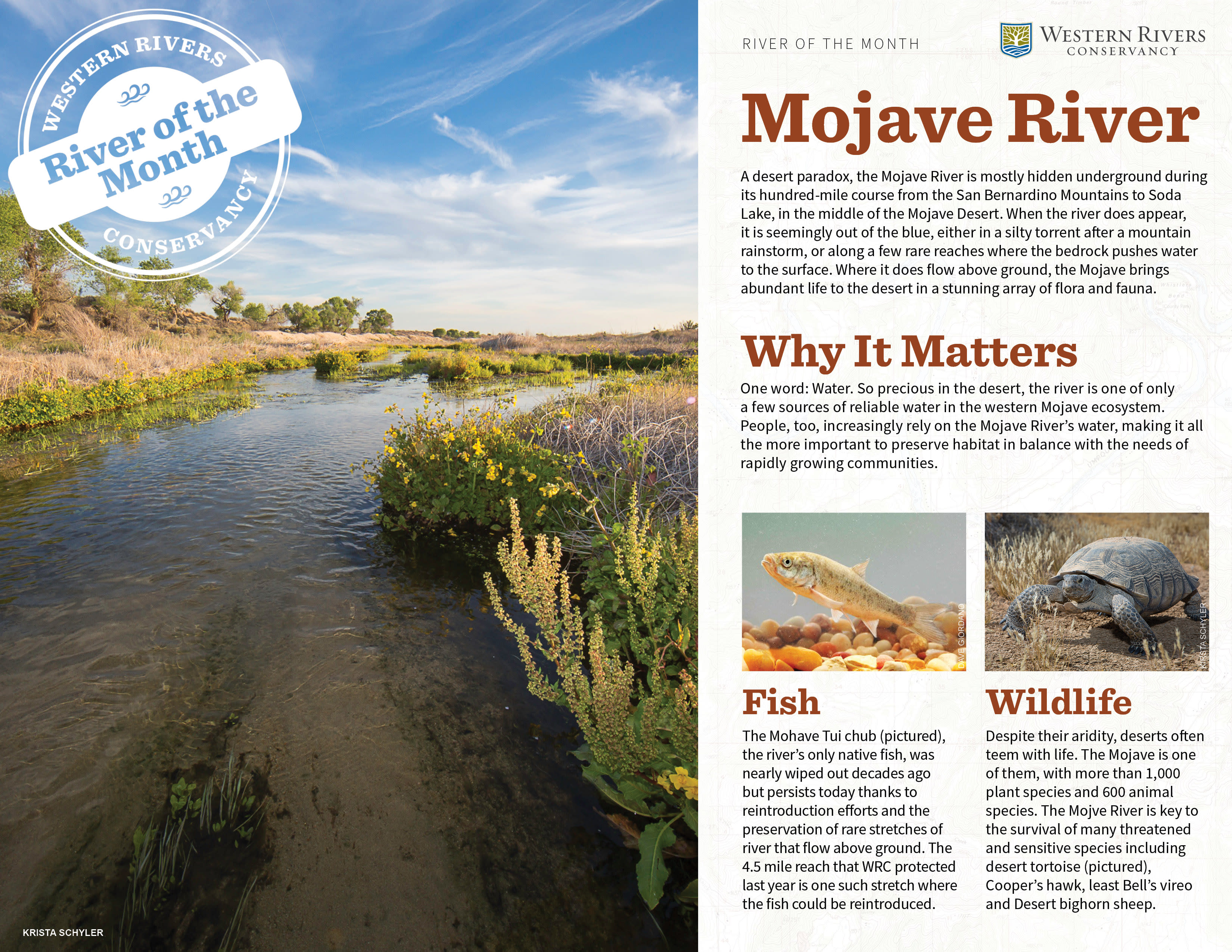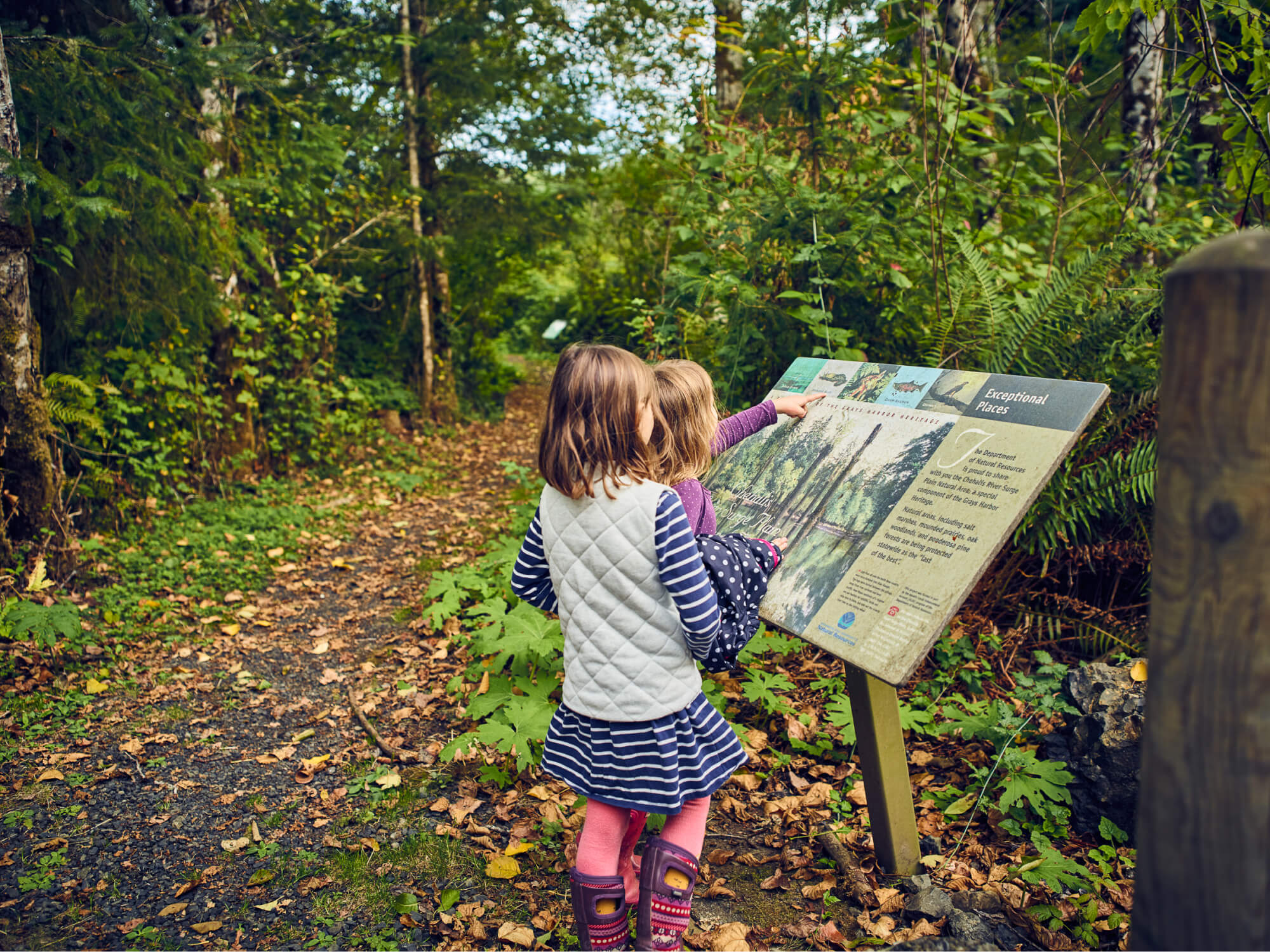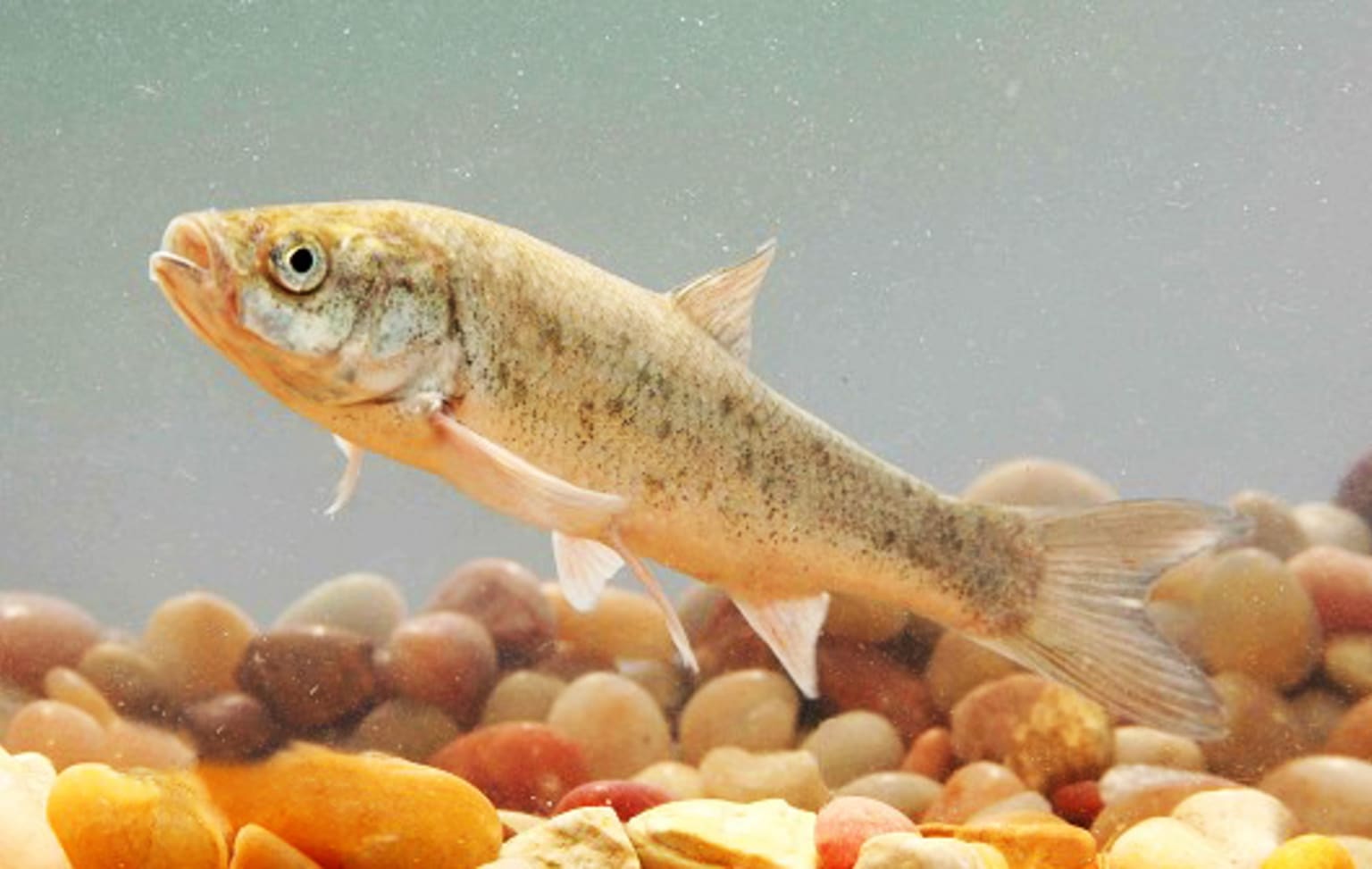
Fish
The Mohave Tui chub (pictured), the river’s only native fish, was nearly wiped out decades ago but persists today thanks to reintroduction efforts and the preservation of rare stretches of river that flow above ground. The 4.5 mile reach that WRC protected last year is one such stretch where the fish could be reintroduced.
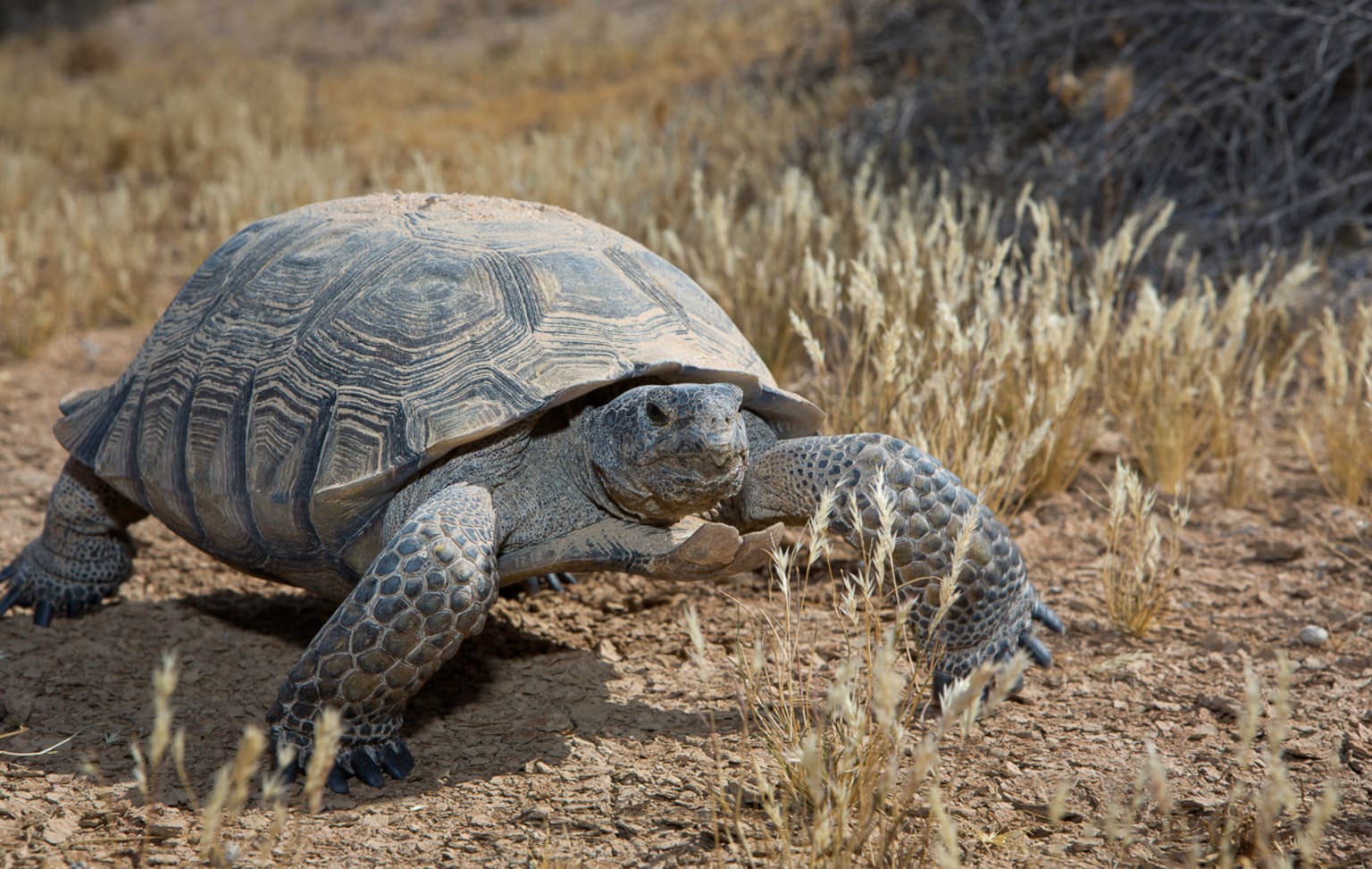
Wildlife
Despite their aridity, deserts often teem with life. The Mojave is one of them, with more than 1,000 plant species and 600 animal species. The Mojave River is key to the survival of many threatened and sensitive species including desert tortoise (pictured), Cooper’s hawk, least Bell’s vireo and desert bighorn sheep.
-
Camp
Stay overnight and stargaze at campgrounds like the Mojave Narrows Regional Park near Victorville, Hole-in-the-Wall Campground in the Mojave National Preserve and the BLM’s Afton Canyon Campground. Check for potable water.
-
Wildflowers
Wet years bring dazzling desert blooms, which start in February and peak in March and April. The preserve keeps a list of what’s blooming among more than 80 species of wildflowers. A day hike to the top of Amboy Crater in the Mojave Trails National Monument offers a panoramic vantage point for blooms.
-
Hike
Experience the “Grand Canyon of the Mojave” on a 20-mile trail through Afton Canyon, where the river flows reliably and you can see bighorn sheep, roadrunners and raptors in the colorful canyon. The Mojave National Preserve offers a list of hikes that showcase sand dunes, volcanic domes and Joshua tree forests.
The WRC Story
In 2018, Western Rivers Conservancy protected a jewel of the Mojave Desert, one of the few places where the Mojave River flows above ground year-round. By acquiring the 1,647-acre Palisades Ranch, we conserved 4.5 miles of the river and one of the Mojave Desert’s finest riparian corridors, with cottonwoods and black willows that stand in beautiful contrast to the arid surroundings. A true oasis, the property harbors 39 special-status wildlife species, including southwestern willow flycatcher, yellow-billed cuckoo and Mojave River vole. Once slated for a golf course and 1,300 homes, the land is now forever conserved. With support from the State of California and U.S. Fish and Wildlife Service, we transferred the property to our partner, the Mojave Desert Land Trust, for permanent protection.
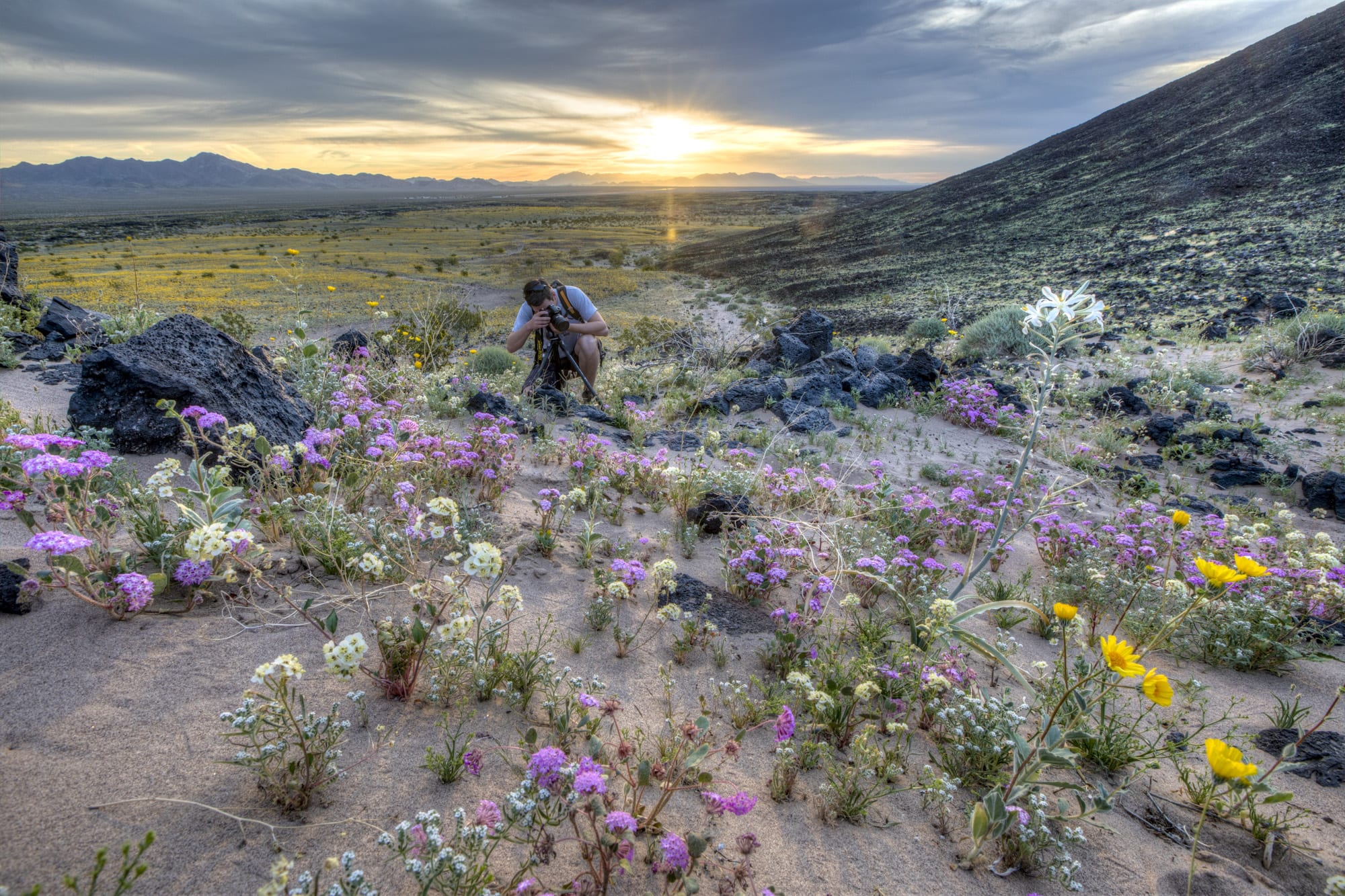
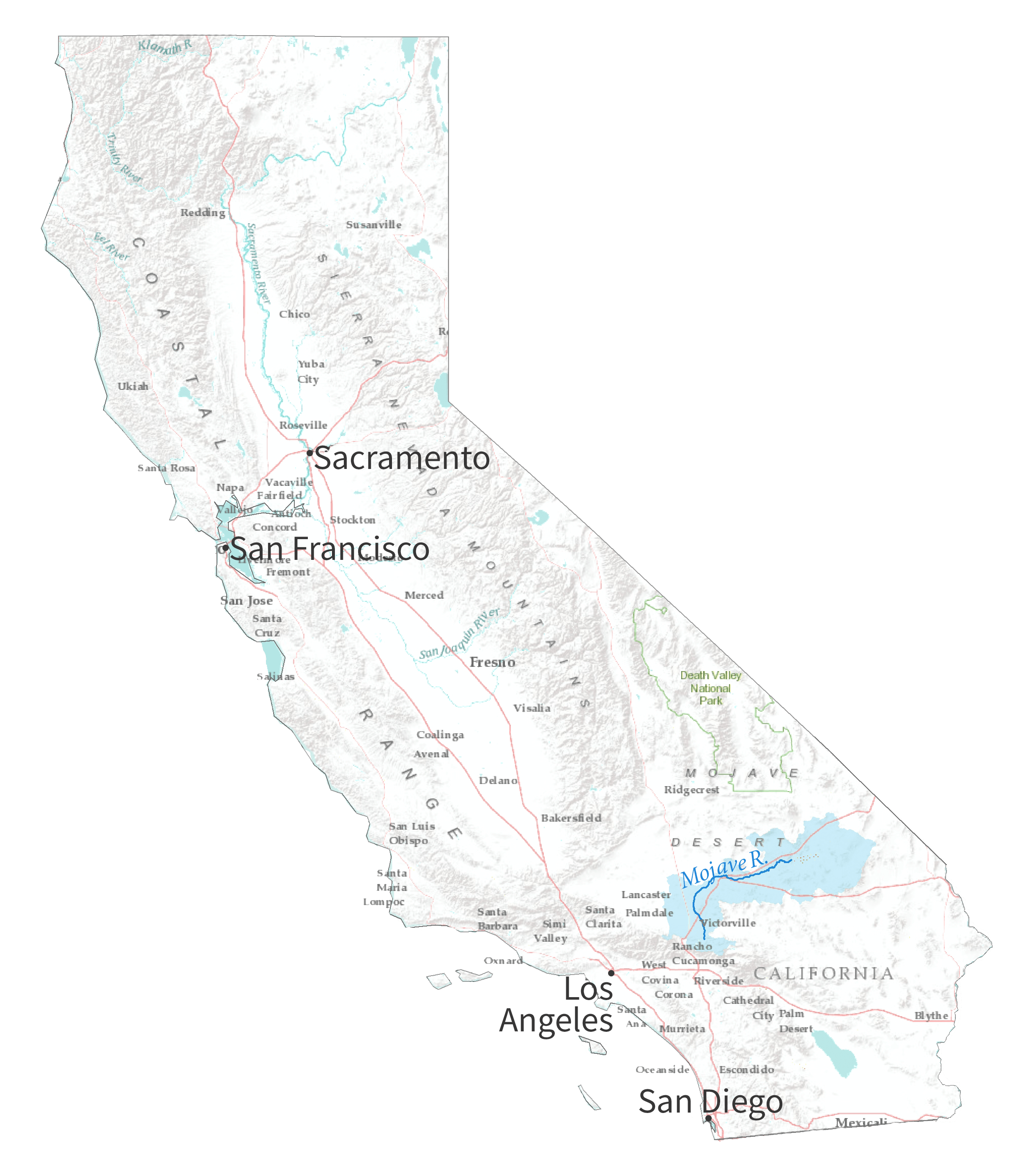
Best Time of Year
- Wildflower
- Feb-Apr
- Hiking, biking
- Spring and fall
Go Deeper
-
The Mojave River and its valley
(Erma Peirson)
Learn More -
The strange history of the Mojave River
(The Sun)
Learn More -
Mojave Wildlife Flower Guide
(mojavedesert.net)
Learn More -
The Ancestral Mojave River
(mojavedesert.net)
Learn More

